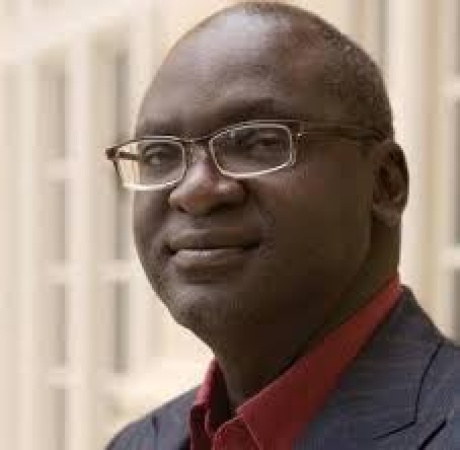





























Loading banners


NEWS EXPRESS is Nigeria’s leading online newspaper. Published by Africa’s international award-winning journalist, Mr. Isaac Umunna, NEWS EXPRESS is Nigeria’s first truly professional online daily newspaper. It is published from Lagos, Nigeria’s economic and media hub, and has a provision for occasional special print editions. Thanks to our vast network of sources and dedicated team of professional journalists and contributors spread across Nigeria and overseas, NEWS EXPRESS has become synonymous with newsbreaks and exclusive stories from around the world.

The Maine Supreme Judicial Court is weighing whether a lower court overstepped constitutional limits when it barred a mother from taking her 12-year-old daughter to church services and restricted her from exposing the child to Bible teachings.
The case, Bickford v. Bradeen, has drawn attention for its unusual scope and the broader questions it raises about parental rights, judicial neutrality toward religion and the evidentiary standards used in family-law disputes.
At the center of the case is an unusually sweeping custody order that barred a Maine mother from taking her 12-year-old daughter to church or exposing her to Bible teachings?restrictions the mother argues violate her constitutional rights and exceed the authority of family courts.
The state?s high court must now determine whether judges can curtail a fit parent?s religious practices based on findings of potential psychological harm, a question that could reshape how courts nationwide weigh parental rights, religious freedom and expert testimony in custody disputes.
A Maine mother, Emily Bickford, is appealing a custody order that gave the child?s father, Matthew Bradeen, exclusive control over all religious decisions and barred her from taking their daughter to church or exposing her to Bible teachings.
The appeal stems from a December 13, 2024, order issued by the Portland District Court, which awarded the child?s father exclusive decision-making authority over all religious matters.
The order followed extensive testimony about Calvary Chapel in Portland, the church attended by the child?s mother.
The court found that teachings and depictions used in the church?s services and youth materials?including images of ?fallen angels? and messages about ?eternal suffering??had caused psychological distress to the child.
Accordingly, the court concluded that exposure to those teachings created a risk of ?psychological harm.?
At oral argument before the state?s high court on November 13, 2025, Emily Bickford?s attorney, Mathew Staver, argued the restrictions were unconstitutional because they imposed what he called a ?total veto? on the mother?s ability to engage in religious education with her daughter, as reported by WABI TV5 News.
Staver told the justices that the district court?s findings fell far short of the showing required under constitutional standards: ?There is no finding of abuse or neglect,? he said, and the record showed only that the child ?at one time was observed to have anxiety,? once had ?an observance of a panic attack,? left ?notes around the house,? and wrote in a workbook ?that this demon image was scary.?
He argued: ?That cannot be a compelling interest.?
Staver also contended the order was broader than the father suggested, asserting that it gave him ?absolute unreviewable authority to deny any kind of association or even reading the Bible or religious philosophy, attending any church or any event or associating with anyone...or any church or religious organization.?
Such breadth, he said, ?cannot under any circumstances survive narrow tailoring.?
Matthew Bradeen?s attorney, Michelle King, defended the lower court?s approach in her written brief.
She argued that the trial judge had identified ?compelling state interests in avoiding substantial harm? to the child and had ?narrowly tailored its restrictions? to address that risk.
The brief maintained that the court acted within its statutory discretion and that the child?s exposure to certain teachings at Calvary Chapel had produced observable emotional consequences.
The district court relied in part on testimony from an expert witness on religious groups and coercive influence.
While the appellant?s brief characterized the expert as ?a blatantly hostile ?expert?? and challenged the neutrality of those findings, the trial court accepted the testimony as credible.
It concluded that the combination of sermons, imagery, and youth curriculum materials used at the church had caused fear and confusion in the child.
The justices probed both sides about the limits of judicial authority in disputes involving religion.
One justice asked whether the ?best interest of the child? standard conflicts with religious-freedom principles.
Staver responded that the standards were ?not in tension? but argued that constitutional protections require courts to meet a heightened threshold when restricting a parent?s religious expression.
Another justice questioned where the line should be drawn if a particular religious practice is alleged to be harmful.
Staver replied, ?There?s certainly [a line].? He distinguished between constitutionally protected religious expression and situations involving physical or sexual abuse, which he said would clearly justify intervention.
The court?s eventual ruling is expected to clarify how Maine courts may weigh psychological-harm claims against constitutional protections for parental rights and religious freedom.
It may also provide guidance on the degree to which judges can consider the content of religious teachings themselves?an issue courts have historically treated with caution.
Mathew Staver, attorney for the mother Emily Bickford, said in court on November 13, 2025: ?I?ve never seen in the history of my career an order as hostile as this one? that order reeks with that kind of hostility.?
Michelle King, attorney for the father, Matthew Bradeen, in a brief: ?Ms. Bickford was short of lying?she told Mr. Bradeen they were simply going to the capital when they were going for an abortion rally.?
Michelle King told Newsweek: "Any court decision regarding the welfare of minors must always be focused on minimizing harm to the child. In this case, the lower court?s decision correctly focused on the minor child?s best interests, including weighing the present psychological harm she was suffering, as demonstrated to the court. Of course, when making decisions regarding minors, courts rightly weigh issues like parental concerns and religious freedom. But the child?s well-being must always be paramount, as it was here."
Now that oral arguments are complete, the Maine Supreme Judicial Court has begun private deliberations and will issue a written decision in the coming months determining whether the lower court lawfully restricted a mother from taking her daughter to church or exposing her to Bible teachings.
The justices may affirm the order, reverse it, or send the case back for further proceedings, and their ruling is expected to clarify how Maine courts balance parental rights, religious freedom, and claims of psychological harm in custody disputes.
The sweeping language used raises First Amendment and parental rights questions that could set a national precedent. (News Week)